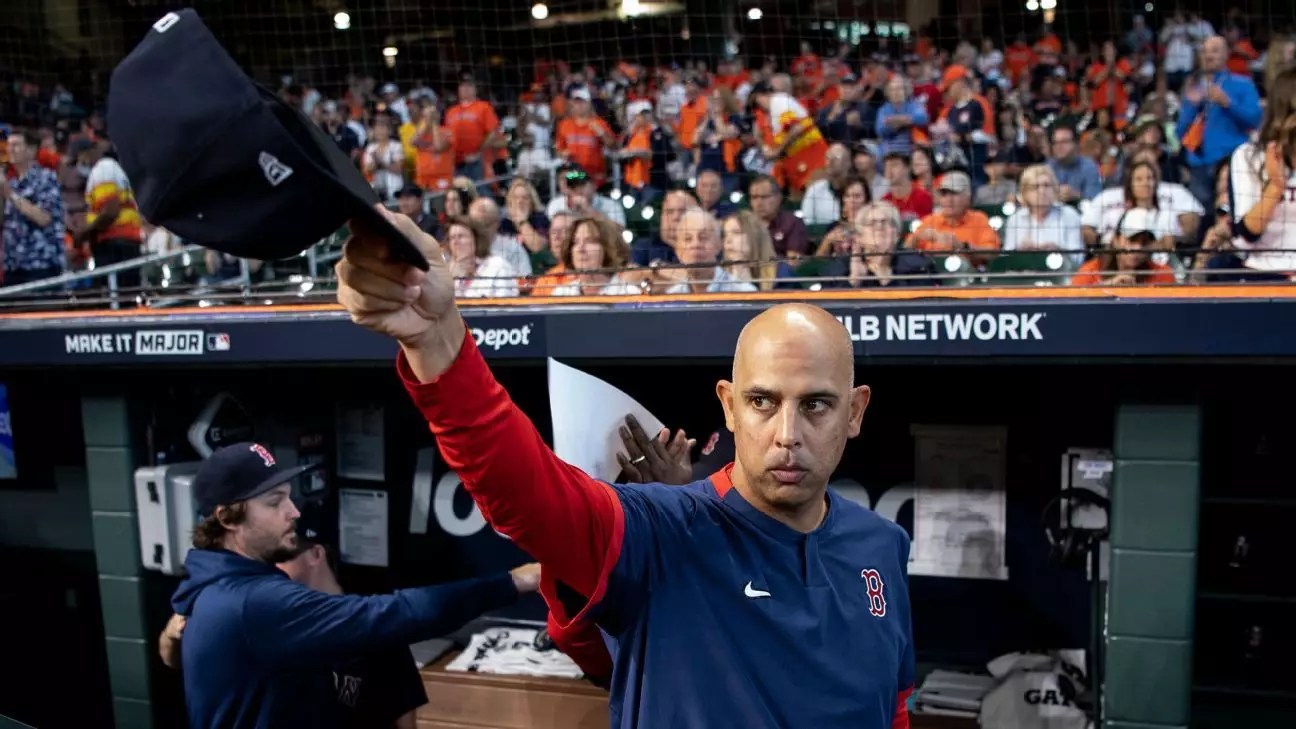In 2024 and beyond, the landscape of professional sports, especially soccer, is facing unprecedented challenges brought about by an excess of fixtures. Recent comments from Alex Cora, the manager of the Boston Red Sox, shed light on the modern dilemma of maintaining player health amid an ever-growing schedule. His newfound admiration for soccer arose during a visit to Anfield, where he experienced the electrifying atmosphere surrounding Liverpool versus Manchester City. This spectacle prompted him to reflect on the incredibly rigged schedules athletes contend with across sports, particularly in soccer. The situation is alarming: leagues are not merely cramming more games into a season but are simultaneously risking player wellness.
Cora acknowledges the high stakes that each game represents, even for clubs that seem out of contention—every position holds significance that can affect promotions, relegations, and qualifications for lucrative tournaments like the Champions League. This intensity resonates with observers of Major League Baseball (MLB) but, importantly, reveals deeper implications for player exhaustion, fitness, and injury prevention.
The Toll of Over-scheduling
The 2024-2025 soccer season is set to be the longest-ever, stretching players to their limits as FIFA decided to schedule the Club World Cup over a staggering four-week period in the U.S.—a decision that has left both players and managers uneasy. High-profile athletes like Kylian Mbappé and Erling Haaland have voiced their discontent with this increasing burden. The discussions centering around fixture overload are pivotal, as injuries have surged this season, severely impacting major clubs. Furthermore, it’s not just isolated to a few bad games; entire seasons could be altered, broken by injury crises that leave teams severely diminished.
The gravity of scheduling reached a poignant moment during Cora’s latest visit to Liverpool, where he ventured into a meaningful conversation with Virgil van Dijk about the packed match timetable athletes face and highlighted the parallel toll both sports undergo. The MLB’s grueling 162-game schedule, when compared to soccer’s multilayered tournaments, indeed exposes players to an unparalleled grind. Major League Baseball’s structure is exhausting, yet soccer’s strain may transcend that, encompassing domestic leagues, international competitions, and mid-season friendlies—engendering a convoluted ecosystem rife with fatigue.
International Fixtures and Player Well-being
Amid the global soccer backdrop, the pressures of international play cannot be overstated. Players are required to juggle their commitment to clubs and national teams, a dichotomy that results in logging a staggering number of games—often surpassing 60 in a single season. This frequency breeds concerns over adequate recovery times, which in turn raises the specter of chronic injuries. Hansi Flick, the manager of Barcelona, recently added his voice to this dialogue, indicating that maintaining the players’ health should be a priority for governing bodies like UEFA and FIFA. Prominent teams find themselves forced to contend with back-to-back tournaments while navigating recovery times that fall short of what is necessary.
A crucial component of this conversation is the way leagues prioritize commercial interests over player welfare. The push for excellence on the field is being mismanaged, overshadowing basic human considerations. It’s a troubling contradiction—while fans demand high-octane action and competitive play, the human toll on athletes often goes overlooked.
Legal and Ethical Implications of Fixture Cramming
The current situation reveals a broader concern applicable across professional sports. Organizations like FIFA must inevitably navigate the difficult intersection between commercial gain and the ethical responsibilities owed to athletes. In a recent statement about the calendar, FIFA highlighted that certain leagues are “acting with commercial self-interest, hypocrisy, and without consideration to everyone else in the world.” But who is truly accountable for charting a sustainable course forward?
The growing discontent among players reflects not just a physical exhaustion but a substantive ethical dilemma: Is it appropriate to demand such a heavy workload from athletes while neglecting their recovery needs? Echoing through this discourse are murmurings of a need for systemic change in how schedules are crafted, emphasizing that players deserve protection from burnout.
As more sports figures, like Cora, express awareness and concern surrounding these matters, the hope remains that governing bodies will hear the cries for change and begin to prioritize the sanctity of the athlete’s health over sheer entertainment value. The modern athlete may be revered like a god, but behind the facade lies an individual whose endurance and spirit must not be sacrificed on the altar of corporate interests. The challenge is ultimately one of humanity: to respect and safeguard the athletes, whose dedication continues to elevate sports to extraordinary heights.


Leave a Reply